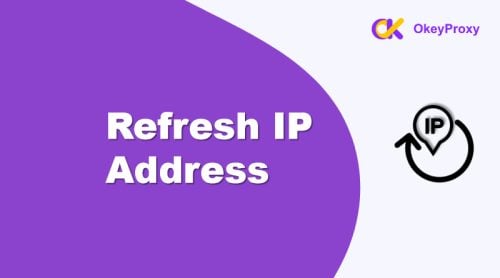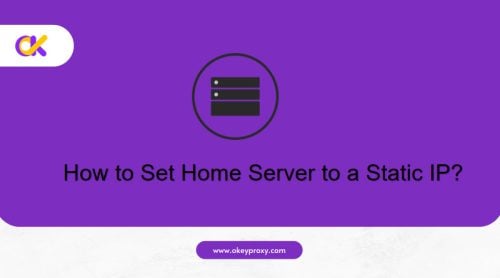For developers and testers on the internet, using random IP addresses is common, as they are often generated to change the IP address from a real location to a new one. A random IP address is an Internet Protocol address that changes frequently or is assigned from a large pool of addresses, making it difficult to trace or predict. Unlike static IPs, random IPs offer enhanced anonymity and flexibility.
Why Random IP Address is Needed?
Random IP addresses are like Swiss Army knives for tech professionals—they’re used in many scenarios to ensure everything runs smoothly and securely. For instance, a software developer might use random IPs to test how an app handles traffic from all over the world, making sure it works just as well in New York as it does in Tokyo. Meanwhile, a cybersecurity expert could use them to simulate hacker attacks from different locations, spotting and fixing vulnerabilities before real threats hit. Even marketers get in on the action, using random IPs to see how ads look in various regions, ensuring their campaigns are hitting the right notes everywhere. Basically, random IP addresses help make sure systems are robust, private, secure, and ready for anything the internet throws their way.
What Makes an IP Address “Random”?
A random IP address is one that is not tied to any particular user or device and is generated in a non-sequential manner. It does not follow predictable patterns, therefore, it is useful for various applications.
4 Ways to Randomize IP Address Effectively
-
IP Address Randomizer [online]
Online tools offer a user-friendly interface for generating random IP addresses. These web-based generators are accessible from any device with an internet connection, providing a quick solution for various needs.
Features
- Accessibility: Can be used directly from a browser without any installation.
- Immediate Results: Generates IP addresses in real-time.
- User-Friendly: Simple interfaces make it easy for anyone to generate random IPs.
Use Cases
- Casual Use: Suitable for non-technical users needing random IPs for minor tasks.
- Quick Testing: Ideal for generating IP addresses on-the-fly for quick tests.
Advantages
- Ease of Use: No technical setup required.
- Instant Access: Quickly generate IP addresses from any device.
Limitations
- Limited Customization: Less control over IP address ranges and formats.
- Privacy Concerns: Using online tools may expose your IP to the service provider.
-
Router [easy]
Routers assign IP addresses to devices on your local network using DHCP (Dynamic Host Configuration Protocol). By restarting your router or changing its settings, you can generate a new IP address for your device.
Features
- Built-in Functionality: Many modern routers come with settings that allow you to change your public IP address.
- Network-Level Control: Directly manipulates the IP address assigned by your ISP.
- Easy Access: Configuration is typically done through the router’s web interface.
Use Cases
- Local Network Troubleshooting: Useful for resolving internal network issues.
- Simple IP Change: Ideal for users needing a new local IP address without external tools.
Advantages
- Easy to Implement: Simple process through router settings or reboot.
- No Additional Tools Required: Utilizes existing network equipment.
Limitations
- Not Always Effective: ISP may assign the same IP.
- Limited Scope: Only changes local IP address, not public-facing IP.
- Not Suitable for Anonymity: Does not hide your IP address from external websites or services.
-
Tor [private]
The Tor network provides a way to generate random IP addresses by routing your internet traffic through multiple nodes worldwide, which changes the apparent IP address, providing a high level of privacy and anonymity.
Features
- Anonymous Browsing: Routes internet traffic through multiple volunteer-operated servers.
- Dynamic IP Assignment: Regularly changes IP address as you browse.
Use Cases
- Sensitive Information: Securely communicates via encrypted email or messaging services.
- Dark Web Access: Browses websites that are not indexed by traditional search engines and often require Tor for access.
Advantages
- High Anonymity: Masks the real IP address effectively.
- Free to Use: Open-source and available at no cost.
Limitations
- Slower Speeds: Can result in slower browsing speeds due to multiple server hops.
- Not Foolproof: Can be vulnerable to certain types of attacks or tracking methods.
- Complex Setup: May require additional configuration for optimal use or to unblock some websites.
-
Proxy [advanced & recommended]
Proxies include residential proxies and data center proxies. The former are usually divided into rotating ISP (Dynamic IP) and static ISP. Dynamic IP proxies offer a way to generate random IP addresses by using a pool of IP addresses provided by proxy services. These proxies can rotate IP addresses automatically at regular intervals or on request.
Features
- Programmable Access: Provides different IP addresses through API calls, allowing integration with other applications.
- Dynamic Results: Can generate random IP addresses on demand and in bulk.
- Customizable: Often offers options for specifying IP ranges and formats from a variety of countries.
Use Cases
- Web Scraping: Aggregate data from the internet without IP bans and CAPTCHAs.
- Social Media Management: Handle multiple accounts and avoid detection.
- Security Testing: Useful for penetration testing and vulnerability assessments.
Advantages
- Versatility: Adapts to various testing and network scenarios with changing IPs.
- Realistic Simulation: Provides a more realistic testing environment by mimicking dynamic IP changes.
- Integration: Can be integrated into broader network management systems.
Limitations
- Complexity: More complex setup and management compared to static generators.
- Higher Resource Usage: Frequent changes may require more computational resources.
- Potential for Overhead: Constant updates might introduce network overhead.
Free Trial of 1 GB from OkeyProxy
With top-tier speed and service, OkeyProxy stands out as a leading proxy provider, offering residential, ISP, and data center proxies to meet both personal and business needs. Whether people are planning to engage on social networks, create multiple accounts, access blocked sites, perform web scraping, or more, OkeyProxy is an excellent assist.
Key Characteristics:
- 150 M+ reliable IP addresses across 200 countries worldwide.
- Customized dashboard and API tailored to your needs.
- Professional support teams available at all times.
- Flexible IP types and cost-effective packages, with free registration for a 1GB trial!
Summary Comparison of IP Address Randomization
| Feature | Router | Online Tools | Tor | Proxy |
|---|---|---|---|---|
| Instant Generation | No | Yes | No | Yes |
| Privacy Protection | No | No | High | Medium |
| Customizable Formats | No | Yes | No | Yes |
| Geographic Range | Local Only | Varies | Global | Global |
| Speed | Fast | Fast | Slow | Varies |
| Ease of Use | Simple | Easy | Complex | Moderate |
How to Set Up Generated Random IP Address
Depending on the operating system or device, the steps to configure a randomized IP address vary.
For Windows
- Go to Control Panel > Network and Sharing Center, then click on Change adapter settings.
- Right-click on the network adapter you want to configure and select Properties.
- Select Internet Protocol Version 4 (TCP/IPv4) and click Properties.
- Choose Use the following IP address and enter your generated random IP address in the IP address field.
- Enter the appropriate Subnet mask and Default gateway (if needed).
- Save all the changes.
For macOS
- Go to System Preferences > Network, then choose the network interface you want to configure (e.g., Wi-Fi or Ethernet).
- Click Advanced, go to the TCP/IP tab, and select Manually from the Configure IPv4 dropdown.
- Enter your generated random IP address in the IP Address field.
- Provide the Subnet Mask and Router if necessary.
- Click OK and then Apply to save the changes.
For Linux
- Open a terminal and use sudo to edit the network configuration file. For example, using nano:
sudo nano /etc/network/interfaces - Modify or add the configuration with your generated random IP address.
- Save the file and restart the network service:
sudo systemctl restart networking
After configuring the random IP address, you could verify that it’s correctly applied and functional!
- Windows: Open Command Prompt and run
ipconfigto check the new IP address. - macOS: Open Terminal and run
ifconfigto verify the IP address. - Linux: Use
ip aorifconfigto check the network interface configuration.
Frequently Asked Questions (FAQs)
Q1: Are random IP addresses legal?
Yes, using random IP addresses is legal, provided you’re not engaging in illegal activities.
Q2: Can random IP addresses prevent hacking?
While they enhance security, they are not foolproof. Additional measures like firewalls and antivirus software are recommended.
Q3: How often should I change IP address?
It depends on your needs. For enhanced privacy, changing your IP address frequently is beneficial.
Conclusion
Choosing the right random IP address generator depends on your specific needs and objectives. Router-based generators are great for local network management, Tor offers strong anonymity, online tools provide quick and easy solutions, and dynamic IP proxies offer frequent rotation as a perfect choice for further purpose of business and technical needs. Each method has its own set of features, advantages, and limitations, making it important to evaluate them based on your requirements for privacy, cost, and usability.











